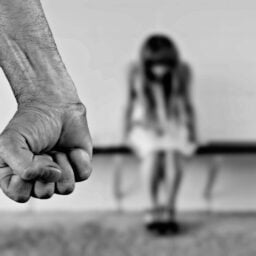Introduction
Imagine for a moment that you were accused of theft. You have been waiting for your hearing for a dozen years, but almost every time, it is delayed. Now, it is a decade after the accusations began, and you are still behind bars. How would you react to it? Is it not unfair to you? Or have you started enjoying life in prison? Your imagination for a moment is the reality of some people. The abysmal state of the criminal justice administration system in India has time and again been criticized and brought to light on numerous occasions, with several remedies being suggested for the same. As per the National Crime Records Bureau (as of 31 December), 2019, there were 4,78,600 inmates lodged in different prisons in India while they had a collective capacity to house only about 4,03,700 inmates. The capacity of prisons increased by 1.90% but the number of prisoners increased by 2.69%, as compared to 2018. This means the number of prisoners was 118.5% of the prison capacity, the highest since 2010.[1] Undertrial prisoners formed 70% of the total prison population in 201[2] The delay in the disposition of cases and detention of the accused pending trial is one of the most neglected aspects of the criminal justice system. Persons in custody awaiting trial by a court are said to be under trial, and sometimes, these under trial prisoners had to undergo a troublesome time and spend years and ages, causing distress and mental issues. Moving forward, let us examine the various aspects of older people in prison and ways we might improve the criminal justice system.
DOZENS OF YEARS IN PRISON: HEAVEN OR HELL?
Can life be Hell in a Prison?
It has been more than 27 years since Perarivalan (a convict in the Rajiv Gandhi assassination case in 1991) was taken away for ‘minor interrogation’ in the case. It is 20 years since he was sentenced to death for acquiring two nine-volt batteries.[3] Like an insect trapped in a giant web, he has been confined for nearly three decades. He was imprisoned because of two nine-volt batteries and two confessions that were gradually misconstrued, since being picked up by the CBI after Rajiv Gandhi’s assassination in 1991, there is no concrete evidence against him, but still, he is in prison and his life is no less than hell. Adults in jail who are getting older generally have physical and mental health issues, such as dementia, as well as trauma and chronic stress histories. Over 3,000 of these men and women will die each year in prison.[4] Based on psychiatric evaluations, the study found that 50% of offenders suffered from a neuropsychiatric disorder, with dementia and personality disorders accounting for half of those identified. According to a study, the old prisoners are described as dependent on the goodwill of the younger prisoners, who were more aggressive, and who threatened and humiliated them. As a result, they depended on the warders and the prison authorities to defend them. These old prisoners also had no friends, employment or means of earning a livelihood in the prison. Some prisoners also argued that once convicted, older people lived disadvantaged and dependent lives. Even once the release is granted, the former inmates find it difficult to find places to go and earn a living. These are some of the many disadvantages aged people feel like a real hell.
Can Prison Serve As A Heaven As Well?
Taking reference from the movie ‘Shawshank Redemption’, a person named Brooks was convicted for some offence and he was in the prison for 73 years. However, when Brooks was approved for parole for his good behaviour, he held a knife to kill a person in jail, so that he could stay in prison, as he has grown so accustomed to living in that prison atmosphere, that he didn’t even have a thought of how the outer world works. After getting out of prison, he committed suicide by hanging himself because he couldn’t understand the outside hustling world. Hence, for him, living in prison was like a ‘heaven’.
There are other merits to like:
- Relaxation: In the realm of this hustling world, all are busy in their lives. No one has a single minute to spend with themselves and talk with themselves. The prison gives a person an opportunity to relax and rest from their running lives. Many people growing old feel that they are on a long vacation and they don’t have to care anything about the outside world.
- Experience: Most of the prisoners, may they be young or old, are assigned some kind of work in the prison-like that like laundry, managing the library, doing agricultural work etc. It helps the prisoners gain experience and do the same work in their lives ahead.
- Fulfilling necessities: The prisoners are provided with all the basic amenities from food, shelter to medical facilities to an extent. This is a plus point for those undertrials or the people who couldn’t afford these necessities.
Some other advantages for the ageing population of prisoners are that they can explore reading (if a prison had a library). Some of the old aged people feel younger and enjoyed more pleasant living conditions in prison.
THE PLIGHT OF UNDERTRIAL PRISONERS
“Justice delayed is justice denied.” It is an inherent right of every individual to live and have their freedom guaranteed by Article 21 of the Indian Constitution, however, undertrials are deprived of their freedom without applying any legal process. Article 21 emphasizes the reasons for the long-term detention. The undertrial remains in prison not because he is guilty or because he has been punished, but because of reasons that cannot be explained by a law that claims to be just and fair. These are some of the specific problems faced by undertrials and can lead to long under trial detention like poor health and sanitation facilities, ill-prepared food, and numerous other ill-treatments, the lives of undertrial prisoners are appalling and usually leave them without aspirations or a desire to go forward. Moreover, since they are cut off from the outside world, they become increasingly desperate to obtain the banned substances to satisfy their addiction to drugs. The families of the undertrials are also a risk combined with the severity of their social stigma and unforeseeable circumstances. Sometimes, these factors result in children being pushed toward delinquency and exploitation by others. As long as there is no system to provide abiding legal services to prisoners, their right to legal aid will be violated due to the politicization of legal aid schemes where lawyers are hired based on political considerations and receive a fixed salary without living up to pressure to handle cases quite rapidly.
CONSERVATIVE SOLUTIONS
- In cases, where public safety permits, it would be apt to advocate the timely and regular compassionate release of prisoners with terminal illnesses, mental or physical disabilities, old age, or those facing other extraordinary and pressing circumstances.
- Even under-trial prisoners should be classified properly and according to scientific principles, it would help to prevent the conversion of first-time offenders and petty offenders into full-fledged and hardened criminals.
- The idea of parole, as established in the case of Budhi v. State of Rajasthan (2005)[5]for convicts can also be one of the options to get a temporary release and get acquainted with the outer world.
- At this point, it might be considered that a comparison of the open jail system presently in use in India with community sentencing might be productive. Open prisons and community sentencing as a form of alternative sentencing are found to be effective in various jurisdictions around the world.
- The concept of ‘Right to Speedy Trial’- as recognised by the Supreme Court in Hussainara Khatoon & Ors v. Home Secretary, State Of Bihar[6] should be implemented efficiently by setting up fast track courts in every district to deal with the pending cases.
CONCLUSION
Life in jail can be difficult for anyone, but it can be especially difficult for those whose bodies and minds are deteriorating due to age. According to the data, India’s prisons house an ever-increasing number of elderly men and women who can’t easily climb stairs, haul themselves somewhere, or walk long distances to meals; whose old bones are weakened, who require wheelchairs, walkers, portable oxygen, and hearing aids; who can’t get dressed. We can’t expect these groups of prisoners to live in prison and rehabilitate since they are too old to commit a crime. We need to rethink ‘does continue to imprison aged people serve anyone’s interests?’ Though India is renowned for its human rights campaigns worldwide, the grim condition of India’s prisons highlights the paradox in the Indian criminal justice system. Reforms of prisons are necessary, but they must be accompanied by the reforms of the judicial system and the reforms of the police, as these two measures form the pillars of the criminal justice system.
Author(s) Name: Vishakha Shakya (Dr. Ram Manohar Lohiya National Law University, Lucknow)
References:
[1] ‘Prison Overcrowding in 2019 Highest in 10 Years’ (Hindustan TimesSeptember 7, 2020) <https://www.hindustantimes.com/india-news/prison-overcrowding-in-2019-highest-in-10-years/story-Mm8VGVG0J12zFvqC9rRFZJ.html> accessed January 2, 2022
[2] Sen VR & S, ‘DATA: 70% Prisoners in India Are Undertrials’ (The HinduSeptember 19, 2020) <https://www.thehindu.com/data/data-70-prisoners-in-india-are-undertrials/article32569643.ece> accessed January 2, 2022
[3] ‘Jailed 27 Years for Assassination He Knew Nothing about, Perarivalan Deserves a New Life’ (The Wire) <https://thewire.in/rights/jailed-27-years-for-assassination-he-knew-nothing-about-perarivalan-deserves-a-new-life> accessed January 2, 2022
[4] ‘Aging Offenders’ (National Institute of Corrections) <https://nicic.gov/tags/aging-offenders> accessed January 2, 2022
[5] Budhi v State of Rajasthan [2005] SCC OnLine Raj 366.
[6] Hussainara Khatoon & Ors v Home Secretary State Of Bihar [1979] AIR 1369.
















